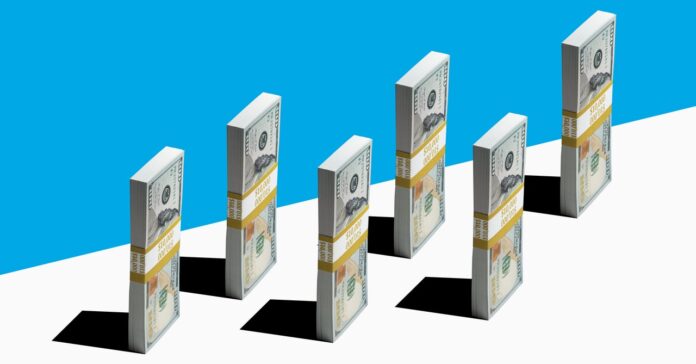OpenAI CEO Sam Altman’s decade-in-the-making effort to understand how handing out free money affects recipients and the broader economy delivered its first big results Monday. OpenResearch found that when it gave some of the poorest Americans $1,000 a month for three years with no strings attached, they put much of the money toward basic needs such as food, housing, and transportation. But what amounted to $36,000 wasn’t enough to significantly improve their physical well-being or long-term financial health, researchers concluded.
The initial results from what OpenResearch, an Altman-funded research lab, describes as the most comprehensive study on “unconditional cash” show that while the grants had their benefits and weren’t spent on items such as drugs and alcohol, they were hardly a panacea for treating some of the biggest concerns about income inequality and the prospect of AI and other automation technologies taking jobs.
Some progressive organizations in the US and elsewhere have advocated for fighting poverty through forms of unconditional cash such as universal basic income. Conservative groups have largely panned the projects as handouts for undeserving people who refuse to work. In two papers published on Monday and a third coming next month, OpenResearch staff and its university collaborators offer data that could help fuel the full spectrum of views.
OpenResearch, which has also drawn funding from organizations like OpenAI and the US government, handed out the unconditional $1,000 transfers from November 2020 to October 2023. The cash provided a 40 percent income boost to a diverse group of 1,000 people ages 21 to 40 who started out in households earning about $30,000 annually across 10 counties apiece in Illinois and Texas. As a control group, 2,000 people with similar characteristics received $50 a month. Participants answered surveys, shared credit reports, and took blood tests.
The perceived benefits for those who received $1,000 monthly varied across facets of life. Their biggest jump in spending involved giving an average of $22 more per month to others, such as helping out relatives in need or gifts to friends. People started seeking out more health care such as dental braces, and started better stocking their refrigerators and pantries.
Some began considering or pursuing startups. By year three of the payments, “Black recipients were 9 percentage points more likely to report starting or helping to start a business than control participants, and women were 5 percentage points more likely,” according to one of the studies.
Participants also moved out on their own, especially those who started out at the lowest incomes, and enjoyed themselves more. The forthcoming paper, of which OpenResearch shared a draft version with WIRED, estimates that roughly 81 cents of each dollar transferred went to higher spending on items such as housing, 22 cents went to leisure, and negative 3 cents went to increased borrowing as recipients took on more car loans and mortgages.
The increased debt brought down participants’ net worth over the three years. Combined with little change in credit access, bankruptcies, and foreclosures, researchers concluded that “the transfer did not improve participant’s long-run financial position.” People did put more money into savings and initially felt better about their financial situation. But they also slightly cut back on work and let the free cash fill in the gap. For every $1 received from OpenResearch, participants’ earnings excluding the free money dropped by at least 12 cents and total household income fell by at least 21 cents.
“Cash offers flexibility and may increase agency to make employment decisions that align with recipients’ individual circumstances, goals, and values,” the researchers wrote. They may be “taking more time to find a job, taking a lower paying position that they find more meaningful, or simply taking a break.”
What critics of assistance programs fear, though, is that instead of investing in the future, people eventually give up on working completely and become ever more reliant on support. OpenResearch found “the total amount of work withdrawn from the market” was “fairly substantial” in its experiment.
Adding the fact that researchers found “no effect” from the cash on several measures of physical health and welfare, and critics may have plenty to snarl at. But the studies’ authors say it’s important not to forget that participants showed with their spending what they valued most. “Policymakers should take into account the fact that recipients have demonstrated—by their own choices—that time away from work is something they prize highly,” authors wrote. If anything OpenResearch has proved true the adage: Money can buy time.
Source : Wired







